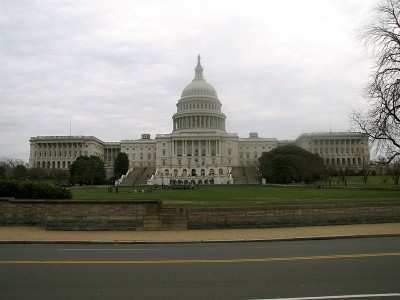Sat, Jul 23, 2011
Bill Says Emissions Trading Scheme Has Negative Consequences
For U.S. Economy
The NBAA on Thursday praised the bipartisan leadership of the
House Transportation Committee for introducing legislation
prohibiting U.S. participation in a European-led Emissions Trading
Scheme (ETS) that would impose new fees on U.S. aircraft flying
into and out of the European Union.

House Transportation Committee Chairman John L. Mica (R-7-FL)
and Ranking Member Nick J. Rahall (D-3-WV), along with Aviation
Subcommittee Chairman Tom Petri (R-6-WI) and Ranking Member Jerry
Costello (R-12-IL), led other House lawmakers in introducing the
bill, the "European Union Emissions Trading Scheme Prohibition Act
of 2011."
"Chairman Mica and Subcommittee Chairman Petri, and Congressmen
Rahall and Costello and their colleagues are to be commended for
taking strong action to prevent the EU from implementing a plan
that will have negative economic consequences for our economy, and
for business aviation," said NBAA President and CEO Ed Bolen. "In
spite of our industry's decades-long progress in reducing
emissions, the costly fees would be levied at a time when our
industry is just beginning to recover from a prolonged economic
struggle, and the House bill is a welcome response to this reality,
and to the importance of aviation in the U.S."

Bolen noted that business aviation has long led the way in
promoting advances aimed at mitigate the industry's environmental
footprint, including application of new technologies that mean
today's general aviation aircraft are cleaner, quieter and more
fuel efficient than ever. In addition, the industry has long
embraced operational advances that reduce aircraft emissions
through efficiencies in aviation system use.
"While the industry will continue working to minimize its carbon
footprint, we welcome this strong signal from government leaders
that emissions policies, like all aviation policies, should be set
by the International Civil Aviation Organization (ICAO)."
More News
Takeoff Roll The process whereby an aircraft is aligned with the runway centerline and the aircraft is moving with the intent to take off. For helicopters, this pertains to the act>[...]
“We’re proud of the hard work that went into receiving this validation, and it will be a welcome relief to our customers in the European Union. We couldn’t be mor>[...]
"Aircraft Spruce is pleased to announce the acquisition of the parts distribution operations of Wag-Aero. Wag-Aero was founded in the 1960’s by Dick and Bobbie Wagner in the >[...]
IDENT Feature The special feature in the Air Traffic Control Radar Beacon System (ATCRBS) equipment. It is used to immediately distinguish one displayed beacon target from other be>[...]
Aero Linx: Pararescue Air Force Pararescuemen, also known as PJs, are the only DoD elite combat forces specifically organized, trained, equipped, and postured to conduct full spect>[...]
 ANN's Daily Aero-Term (05.10.24): Takeoff Roll
ANN's Daily Aero-Term (05.10.24): Takeoff Roll Aero-News: Quote of the Day (05.10.24)
Aero-News: Quote of the Day (05.10.24) Aero-News: Quote of the Day (05.11.24)
Aero-News: Quote of the Day (05.11.24) ANN's Daily Aero-Term (05.11.24): IDENT Feature
ANN's Daily Aero-Term (05.11.24): IDENT Feature ANN's Daily Aero-Linx (05.11.24)
ANN's Daily Aero-Linx (05.11.24)




